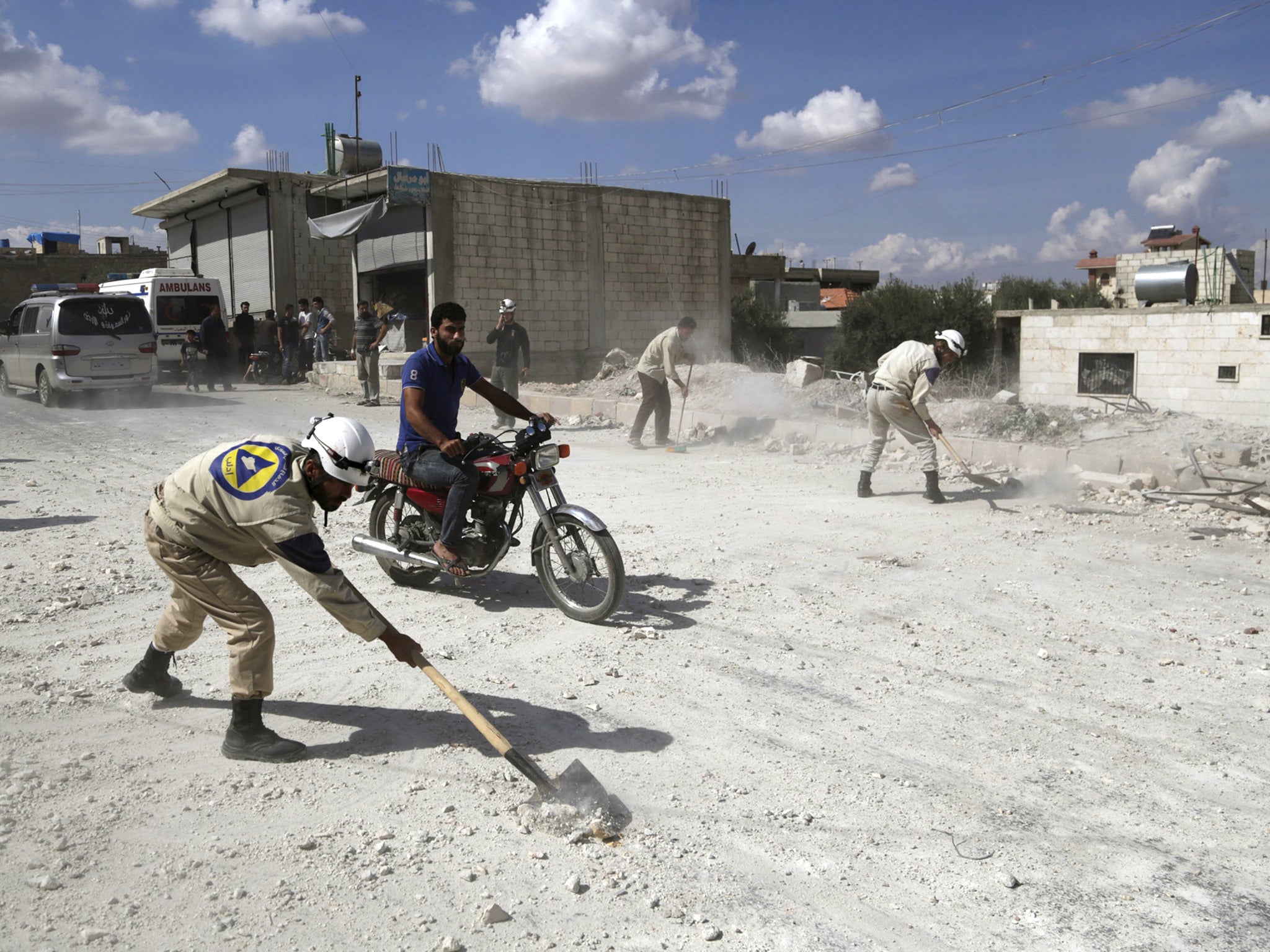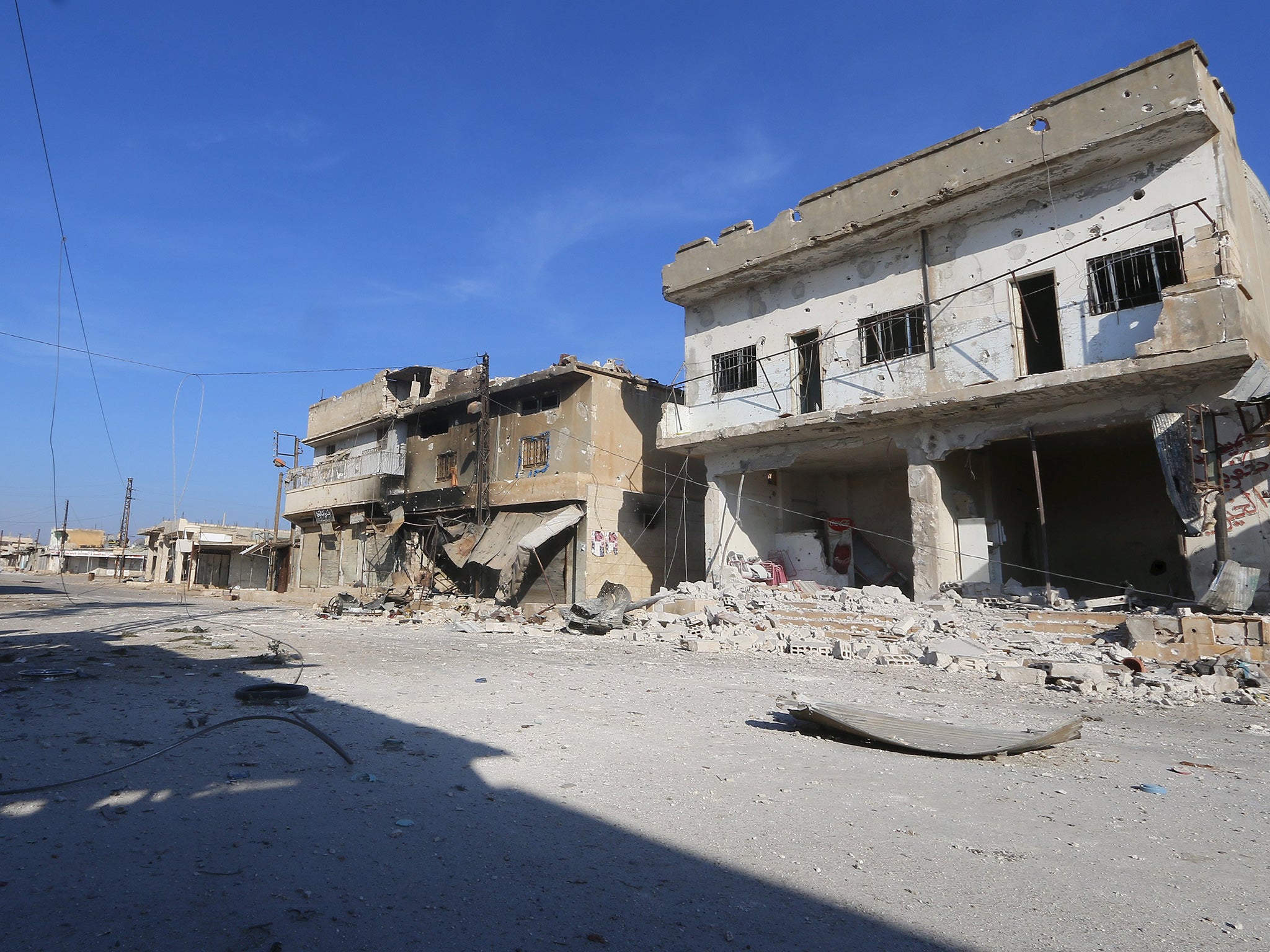Syria crisis: Vladimir Putin seeks to allay Gulf’s fears over air strikes

President Vladimir Putin met Crown Prince Mohammed Bin Zayed al-Nahyan of the United Arab Emirates as the Russian leader seeks to soothe fears among Sunni Muslim Gulf states over Moscow’s intensifying bombing campaign in Syria.
The two men discussed the situation in Syria in the southern Russian city of Sochi before heading off to watch the Russian Grand Prix. There is growing unease in the Gulf over Russian air strikes, which appear to be shoring up President Bashar al-Assad, as well as an emerging alliance between Moscow, Damascus and Shia-dominated governments in Iran and Iraq.
The meeting between Mr Putin and Crown Prince Mohammed focused on developments in the Middle East “in light of the recent terrorist attacks in Turkey”, the Kremlin said in a statement.
Russian media reported last week that the Saudi Defence Minister Mohammed bin Salman was also planning to visit Moscow – but this was not officially confirmed.
In an interview with Russian state television on Sunday, Mr Putin complained that Western and Arab governments were not sharing information with Moscow that could help Russian jets avoid targeting moderate insurgent groups fighting against Mr Assad.

“If they really want to fight terrorism, let them they tell us where the terrorists are hiding and where their command points and equipment dumps are located. Give us these targets. What could be simpler?” Mr Putin said.
Evidence from Syria, including allegations from anti-Assad rebels that Russian jets have targeted them, suggests Russia’s intervention is designed to help Damascus, rather than to destroy Isis as Mr Putin maintains. Saudi Arabia and the UAE have both criticised Russia over air strikes, and Saudi Arabia has reportedly decided to boost its arms shipments to Syrian opposition groups in response.

The US Secretary of State John Kerry warned last week that Moscow’s co-ordination with Iranian militias to help Mr Assad could see Russia become a target for Sunni jihadists. Ties between Moscow and Gulf states appeared to be warming this year amid several high-level visits and the signing of military and energy agreements, but they have been strained by Moscow’s new military assertiveness.
The Syrian Observatory for Human Rights, a group that monitors the conflict, said the Syrian military allies had taken control of Tal Skik, a highland area in Idlib province, after Russian bombing.
“The coming battles are going to be ferocious; the Russians are using scorched-earth policy and they are hitting the targets very accurately but this is a battle of destiny,” Abu Hamed, head of the military bureau of Jabhat al-Sham, an insurgent group that operates mainly in Hama province, told Reuters. “We are fighting for our very existence.”
Mr Putin said Russian air strikes in Syria would not cease until the Syrian army had made substantial gains. Russia’s defence ministry said its planes had flown 64 sorties, striking 63 targets and destroying 53 fortified positions in the last 24 hours. It described all targets as belonging to Isis.
Syrian state television also reported the capture of Tal Skik after an “extensive military operation” backed by Russian air strikes.
Join our commenting forum
Join thought-provoking conversations, follow other Independent readers and see their replies
Comments